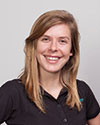The Campbell Institute: ‘Avoiding the yets’

The Campbell Institute at the National Safety Council is the EHS center of excellence. Built on the belief that EHS is at the core of business vitality, the Institute seeks to help organizations, of all sizes and sectors, achieve and sustain excellence. Learn more at thecampbellinstitute.org.
At Norfolk Southern Corp., our motto is “Safety First.” Safety is a condition of employment. No job is so important, no task so urgent, that it cannot be completed safely.
When we talk about safety on the railroad, we talk about “avoiding the yets,” or curtailing behaviors that are unsafe but have not yet resulted in injury. Not double-checking a switch. Failing to wear proper personal protective equipment. When we make unsafe choices, it’s usually because they seem easier, quicker and more convenient.
When we make these choices, safety is not a priority.
It’s the same with personal safety: We text and drive – even though we know it’s unsafe – because nothing bad has happened. Yet.
And it’s the same with our health.
Every day we make unhealthy choices. We hit the snooze button instead of lacing up our sneakers. We opt for fast food over greens and grains. We munch on vending machine chips instead of packing our lunch.
Because it’s easier to sleep in. It’s quicker to visit a drive-thru. It’s more convenient to make a meal of pre-packaged snacks. When we make these choices, our health is not a priority.
Healthy behaviors aren’t a mystery. We all know what to do. Drink more water. Stay active. Get eight hours of sleep. Eat fruits and vegetables.
Still, we make unhealthy choices every day. We know that eating an entire pizza during an “Orange is the New Black” binge-a-thon on the couch is unhealthy. But we do it anyway because there aren’t any immediate consequences. Nothing bad has happened to us … yet.
Every food choice we make either pulls us closer or pushes us further from good health. The damage isn’t visible, but our poor choices pile up. Each cheeseburger sends our blood pressure skyward, one bite at a time. It’s not a matter of if our bad habits will catch up with us, but when.
And when they do, it’s serious business.
Cancer. Heart disease. Stroke. Diabetes. Big, scary things. Wellness is not a matter of vanity or “Biggest Loser” competitions or bikini bodies. It’s not a matter of willpower or motivation or time or money. It’s a matter of life and death.
That idea – of wellness as a matter of life and death – might get an eyeroll from most, but it’s the truth. The top three leading causes of death in America are heart disease, cancer and respiratory disease. Combined, they account for more than half of all deaths in the United States. And the leading risk factors for these diseases are the same: poor lifestyle choices, eating unhealthy food, leading a sedentary life or smoking. One piece of cake won’t kill us, but the damage snowballs over time.
Sure, there’s no way to completely eliminate risk, be it health- or safety-related, but that doesn’t mean that safeguarding against potential injuries or illnesses is pointless or without merit. “Avoiding the yets” of poor health can help to reduce our risk for chronic diseases and improve our quality of life.
Safety at Norfolk Southern is what allows us to go home every day, unharmed.
Wellness is what allows us to keep going home every day, even after we retire. It enables us to live long lives, to see our children grow up and see their children do the same.
At Norfolk Southern, we work to mitigate the risks of poor health at a corporate level by fostering a culture of health and wellness. We educate employees about eating healthy, getting active and quitting smoking. We encourage employees to take the stairs, pack a lunch, or schedule a walking meeting. Outside of the office, we stay active by teaming up for activities like 5K walks or bike rides. We offer programing that makes it easier for employees to access wellness services such as gym memberships or tobacco cessation medication, and we make wellness personal by sharing success stories from our employees. Just as we provide each employee with proper safety equipment – vests, hard hats, safety goggles – we must provide our employees with the tools they need to live a healthy life.
This article represents the views of the author and should not be construed as a National Safety Council endorsement.
 Kristen Simon is the assistant manager EAP (Employee Assistance Program) for Norfolk Southern Corp., one of the nation’s premier transportation companies. Norfolk Southern is a member of the Campbell Institute at the National Safety Council.
Kristen Simon is the assistant manager EAP (Employee Assistance Program) for Norfolk Southern Corp., one of the nation’s premier transportation companies. Norfolk Southern is a member of the Campbell Institute at the National Safety Council.
Direct to your inbox: Sign up to be notified in email about new Campbell Institute columns.
Post a comment to this article
Safety+Health welcomes comments that promote respectful dialogue. Please stay on topic. Comments that contain personal attacks, profanity or abusive language – or those aggressively promoting products or services – will be removed. We reserve the right to determine which comments violate our comment policy. (Anonymous comments are welcome; merely skip the “name” field in the comment box. An email address is required but will not be included with your comment.)

